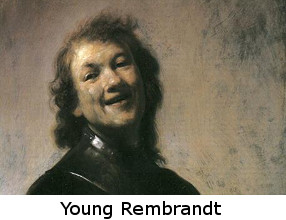Mary Pettibone Poole? W. E. Nesom? George F. Worts? H. L. Mencken? Joe Laurie Jr.? Franklin P. Adams? Anonymous?

Question for Quote Investigator: There is a famous proverb that asserts the last person to laugh is the person who laughs the best or the longest. I am interested in a cleverly modified statement emphasizing the connection between humor and longevity:
He who laughs—lasts.
Would you please explore this saying?
Reply from Quote Investigator: For many years this comical remark has been ascribed to Mary Pettibone Poole who published a compilation of quotations and quips in 1938 with the vividly absurdist title “A Glass Eye at a Keyhole”. Poole placed this joke in a section “Beggars Can’t Be Losers”:1
He who laughs, lasts!
None of the statements in Poole’s work were given attributions, and some were probably original; however, many were not. QI can now report some earlier instances of the joke above.
In November 1917 the humor magazine “Judge” printed a poem by W. E. Nesom titled “Perverted Proverbs” that playfully modified adages. The fifth stanza was the following. Boldface has been added to excerpts:2
If laughter be an aid to health,
Then logic of the strongest
Impels us to the cheerful thought
That he who laughs lasts longest.
The above citation was located by top researcher Stephen Goranson, and W. E. Nesom may have been the originator of this proverbial twist. Currently, this is the earliest evidence known to QI.
Below are additional selected citations in chronological order.
In 1926 “Munsey’s Magazine” published a novelette titled “The Not Impossible He” by George F. Worts that included the following passage:3
“You just said you loved my sense of humor, Jord. So do I. I simply adore my sense of humor. You’ve heard the old proverb, haven’t you—he who laughs—lasts?”
So, in 1926 the quip was already being described as an “old proverb”. This version omitted the word “longest” and was a bit more concise than the 1917 instance.
In February 1934 the mass-circulation periodical “Reader’s Digest” published the saying in a section called “Patter” that featured items sent in by readers. No attribution was listed:4
He who laughs—lasts.
In 1934 “The Times-Picayune” newspaper of New Orleans, Louisiana printed an instance in the section of the periodical for ‘Young People”. The expression was enclosed in quotation marks indicating that it was already in circulation:5
“He who laughs—lasts”…..someone ought to start a “Bright Sayings of Geometry Teachers” column.
In 1938 Mary Pettibone Poole included the remark in her compilation of witticisms called “A Glass Eye at a Keyhole” as noted previously.
In 1942 the prominent commentator H. L. Mencken placed the adage in his massive tome “A New Dictionary of Quotations on Historical Principles from Ancient and Modern Sources”. Mencken gave credit to Poole:6
He who laughs, lasts.
MARY PETTIBONE POOLE: A Glass Eye at the Keyhole, 1938
In 1949 the popular columnist Earl Wilson published a book called “Let ‘Em Eat Cheesecake”, and he ascribed the remark to “a little ex-vaudeville fellow, now on the radio”:7
What Joe Laurie, Jr., said was:
“He who laughs, lasts.”
In 1952 the influential columnist Franklin Pierce Adams printed the saying in his collection “FPA Book of Quotations” and credited Poole:8
He who laughs, lasts.
—MARY PETTIBONE POOLE (contemporary)
A Glass Eye at the Keyhole
In conclusion, the earliest instance known to QI appeared in a poem by W. E. Nesom in 1917, and it was possible that he crafted this quip. The second earliest instance was written by George F. Worts in 1926. This version was more concise. Mary Pettibone Poole helped to popularize the joke, but she did not construct it.
Image Notes: Cropped section of the painting “The Young Rembrandt as Democritus the Laughing Philosopher” by Rembrandt via WikiArt.
Acknowledgement: Many thanks to Dennis Lien for accessing and examining “A Glass Eye at a Keyhole”. Great thanks to Stephen Goranson for locating and sharing the 1919 citation.
Update History: On January 8, 2025 the format of the bibliographical notes was updated.
- 1938, A Glass Eye at a Keyhole by Mary Pettibone Poole, Section: Beggars Can’t Be Losers, Quote Page 40, Published by Dorrance and Company, Philadelphia, Pennsylvania. (Verified with scans; thanks to Dennis Lien and the University of Minnesota library system) ↩︎
- 1917 November 3, Judge, Poem: Perverted Proverbs by W. E. Nesom (Fifth stanza), Unnumbered Page (2 pages away from back cover), Column 3, Published by Leslie-Judge Company, New York. (HathiTrust Full View) link link ↩︎
- 1926 September, Munsey’s Magazine, Volume 88, Number 4, The Not Impossible He by George F. Worts (Novelette), Start Page 743, Quote Page 756, Published by The Frank A. Munsey Company, New York. (Unz) ↩︎
- 1934 February, Reader’s Digest, Volume 24, Patter, Quote Page 107, The Reader’s Digest Association. (Verified on paper) ↩︎
- 1934 March 4, Times-Picayune, Section: The Young People’s Paper, Aunt Jane’s Letter Club, Letter to Aunt Jane: The Scratch Pad by Chris Marlee, Quote Page 4, Column 1, New Orleans, Louisiana. (GenealogyBank) ↩︎
- 1942, A New Dictionary of Quotations on Historical Principles from Ancient and Modern Sources, Selected and Edited by H. L. Mencken, (Henry Louis Mencken), Section: Laughter, Page 654, Column 1, Alfred A. Knopf. New York. (Verified on paper) ↩︎
- 1949, Let ‘Em Eat Cheesecake by Earl Wilson, Quote Page 69, Doubleday & Company, Garden City, New York. (Verified on paper) ↩︎
- 1952, FPA Book of Quotations, Selected by Franklin Pierce Adams, Section: Laughter, Page 484, Column 2 Funk & Wagnalls Company, New York. (Verified on paper) ↩︎